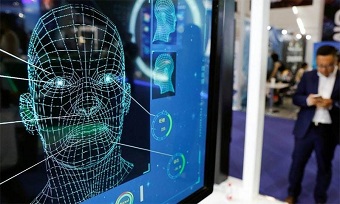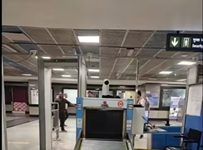India is working to build the biggest facial recognition system in the world. The government envisions a future where the police officials from the 29 states will be able to access a single, centralized database. The details of the project are laid out in the 172-page document released by the National Crime Records Bureau. The document even requests the bids from the companies to build the face recognition system, and interested parties had time till the 21st of October to submit their proposal.
The project, which remains unnamed, would match the images from the country network of CCTV Cameras against a database encompassing mugshots of criminals. It will also match images against the passport photos, and images collected by agencies such as the Ministry of Women and Child Development. The platform, as per the document, will also allow the searches based on the photos uploaded from the newspapers, images sent in by the public, or artists’ sketches of suspected criminals.
The system will recognize faces on the CCTV cameras and generate an alert if a blacklist match is found. The government of India also proposes equipping the security forces with hand held mobile devices to capture a face in the field and search it instantly against the national database using a dedicated app. The database has also been playing a vital role in identifying criminals, missing persons, and bodies. According to the report by CNN, it is still not known how many companies have submitted bids to help build India’s facial recognition system.
HP Enterprise, Accenture, IBM have reportedly shown interest, according to the report. Moreover, it also revealed that having a foreign company set up a critical security apparatus could raise national security issues.
The Indian government also has a primary aim to complete the project in less than eight months after the contract is signed. Moreover, some of the experts doubt if India can carry out such an ambitious project in such a short duration of time. A more realistic time frame would be 12 to 18 months, revealed Krishnan, who describes the project as technically challenging. The biggest challenge comes in the form of a number of installed security cameras in the country. There is also a major concern of the national database, which is being linked to the Aadhaar card, which already covers more than 90% of the population. Gupta adds that the wide CCTV Network paired with the 1.2 billion Indians covered with the Aadhaar could result in a total permanent surveillance state.








